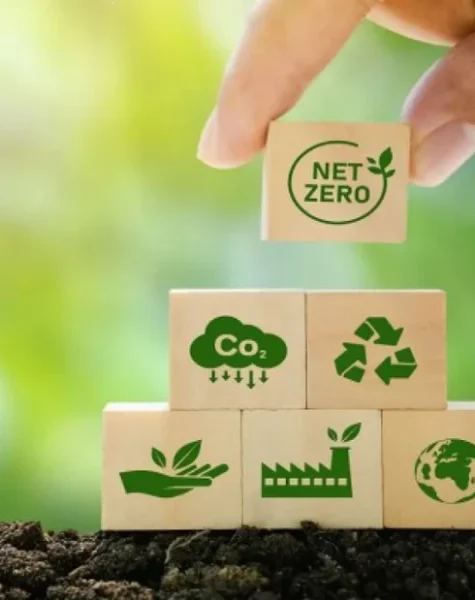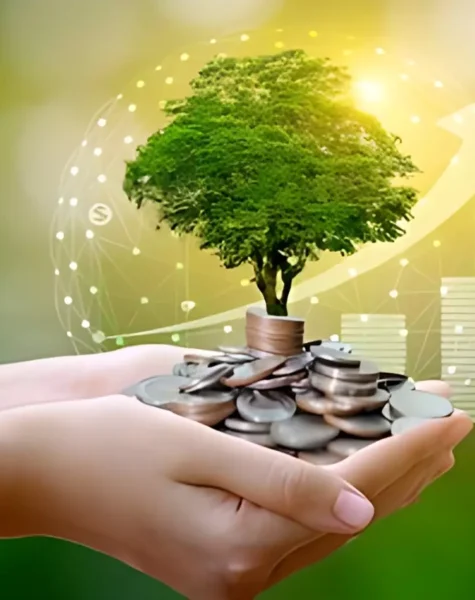Support the Planet: Embrace the Value of Green Credits!
In today’s world, environmental awareness is crucial. Initiatives like Green Credits offer hope amidst GSES challenges, encouraging proactive environmental care.
Green Credits symbolize tangible rewards for environmental actions. Whether through tree planting, renewable energy, waste management, or water conservation, they represent a commitment to sustainability.
As we embark on the journey towards a greener, more sustainable future, the importance of initiatives like the Green Credit Programme cannot be overstated. By encouraging environmental action and rewarding positive contributions, Green Credits empower individuals, organizations, and communities to make a real difference in the fight against GSES issues and environmental harm. Together, let us embrace the power of Green Credits and pave the way for a brighter, more environmentally-resilient tomorrow.


- Agroforestry Projects
• Sustainable Farming Practices
• Reforestation Initiatives
• Soil Carbon Sequestration
- Solar Panel Installations
• Wind Turbine Projects
• Hydroelectric Power Generation
• Biomass Energy Production
- Building Retrofitting for Energy Efficiency
• Energy-Efficient Appliance Programs
• Industrial Process Optimization
• Smart Grid Implementation
- Recycling Programs for Plastics, Paper, and Metals
• Composting Initiatives
• Waste-to-Energy Projects
Which Activities Are Considered Under the Green Credit Programme?
There are a certain number of activities that are covered under the Green Credit Programme that can help you earn these credits and convert them into revenue. These are:
- Tree Plantation: This involves planting trees to create more green spaces, which helps combat deforestation and improves the environment.
- Water Management: It includes strategies to use water more wisely and conserve it, ensuring that water resources are protected and available for future generations.
- Sustainable Agriculture: This promotes farming practices that are safe for the environment, such as using natural fertilizers and reducing chemical use, to ensure food production is sustainable and doesn’t harm the fertility of the soil.
- Waste Management: This focuses on managing waste in a way that reduces pollution and environmental damage, such as the conversion of organic waste into renewable sources of energy.
- Air Pollution Reduction: Focuses on reducing pollution in the air, like using cleaner energy sources and controlling emissions from factories and vehicles, to improve air quality and public health.
- Mangrove Conservation and Restoration: This involves protecting and restoring mangrove forests, which are vital ecosystems that provide habitat for many species and protect coastlines from erosion and storms.
- Eco-mark Labeling: This involves getting a special certification, called the eco-mark, for products that meet very high environmental sustainability standards. It’s like a stamp of approval that shows the product is eco friendly and doesn’t harm the environment.
- Sustainable Building and Infrastructure: This means constructing buildings and other structures in a way that’s good for the environment. It includes using ecofriendly materials, designing buildings to use less energy and water, and making sure they have minimal impact on nature around them.
Quality and Reliability
At GSES, our foremost focus is on delivering quality and reliability. Every project we undertake is made possible through the invaluable support of our clients, making them all supplementary endeavors. We guarantee that each project adheres to rigorous standards such as the Verified Carbon Standard, the GSES Community and Biodiversity Standard, or the Gold Standard, ensuring the utmost integrity and environmental impact.
Contact
- Block 23 B, Sector B, Sanwer Road, Industrial Area, Indore, M.P - 452010 (India)
-
+91 9098212176
+91 8827512675 - info@mediumpurple-ant-258386.hostingersite.com

